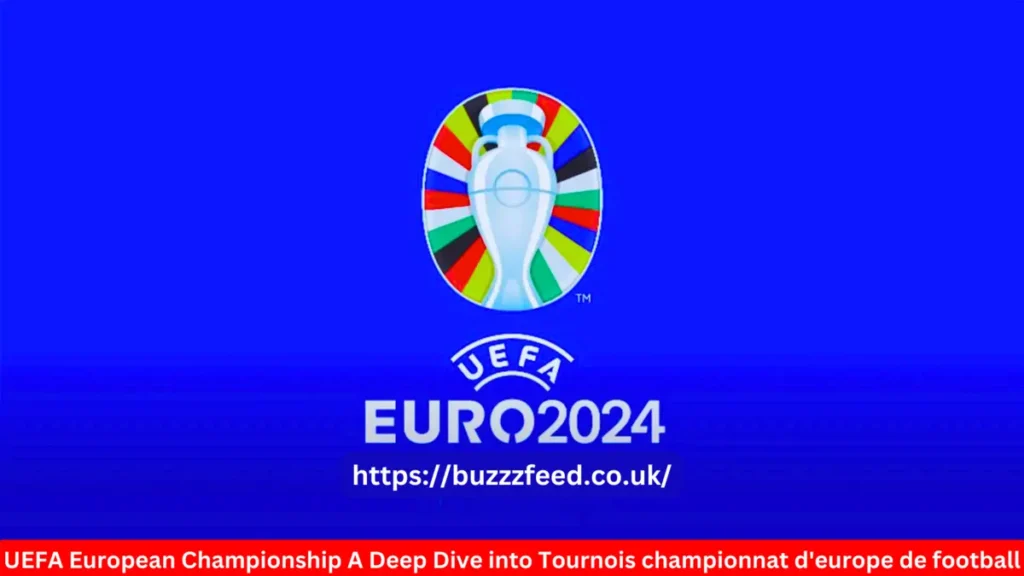Every four years, Europe’s top national teams gather to compete in one of the most prestigious football tournaments in the world—the UEFA European Championship. Known affectionately as the Euros, this tournament has a rich history of drama, upsets, and high-quality football. In this article, we explore the history, significant moments, format changes, and impact of this celebrated tournois championnat d’europe de football.
The History of the Euros
The UEFA European Championship commenced in 1960, and Henri Delaunay, the French Football Federation general secretary, conceived it. The first tournois championnat d’europe de football involved four teams competing in France. It has since evolved to include 24 teams, reflecting its growing popularity and football development across the continent.
Significant tournois championnat d’europe de football
Each iteration of the Euros has its own stories and legends. For instance, the 1976 tournament saw Czechoslovakia win in a dramatic final against West Germany with the first-ever penalty shootout in a European Championship. The most memorable penalty was Antonín Panenka’s cheeky chip down the center, a move now famously known as the “Panenka.”
In more recent times, the 2004 tournament in Portugal saw one of the biggest upsets in football history when Greece, under the management of Otto Rehhagel, triumphed over hosts Portugal in the final. This victory remains a classic example of tactical ingenuity and team spirit overcoming individual brilliance.
Format Changes and Expansion
The Euros format has changed several times over the decades. Initially featuring only four teams, it expanded to eight in 1980, sixteen in 1996, and twenty-four in 2016. This expansion allowed more European teams to participate, increasing the tournois championnat d’europe de football and unpredictability.
The latest format involves six groups of four teams, with the top two from each group plus the four best third-placed teams advancing to the knockout stages. This structure not only prolongs excitement for fans but also provides smaller football nations a chance to shine on the European stage.
Impact on European Football
The Euros have profoundly impacted European football, both culturally and tactically. It has been a showcase for tactical innovations, such as the total football displayed by the Dutch in the 1970s and the tiki-taka that dominated Spain’s successful campaigns in 2008 and 2012.
Moreover, it offers a unique platform for players to make their mark. Tournaments like the Euros can serve as a launchpad for promising careers. For example, players like Michel Platini in 1984, who scored nine goals in five games, and Antoine Griezmann in 2016, who helped propel France to the finals, became international icons following their performances.
Economic and Social Impact
Beyond the pitch, the Euros have significant economic and social impacts. Host nations enjoy a boost in tourism and global visibility. For instance, the 2016 tournament in France generated €1.22 billion in economic impact, according to UEFA’s data, and created approximately 26,000 jobs.
Socially, the Euros bring together diverse cultures, fostering a sense of unity and celebration among different nations. The tournament is when rivalries are celebrated in a spirit of respect and sportsmanship, illustrating the power of football to unite people.
Challenges and the Future
The expansion of the tournament has not been without challenges. Critics argue that increasing the number of teams dilutes the quality of football and complicates the scheduling. Furthermore, the decision to host the 2020 tournament across multiple countries posed logistical challenges, though it aimed to celebrate the competition’s 60th anniversary in a pan-European fashion.
Looking ahead, UEFA continues to adapt and plan future tournaments focusing on sustainability and technology. Initiatives like carbon offsetting for team travel and using advanced VAR technology demonstrate UEFA’s commitment to modernizing the competition while maintaining its traditional spirit.
Conclusion
The UEFA European Championship remains one of the most exciting and revered competitions in the sports world. With its rich history of dramatic matches, tactical innovations, and moments of sheer footballing pleasure, it continues to captivate the hearts of fans around the globe. As we look to future tournois championnat d’europe de football, the Euros promise to continue their excellence, unity, and thrilling football legacy.






